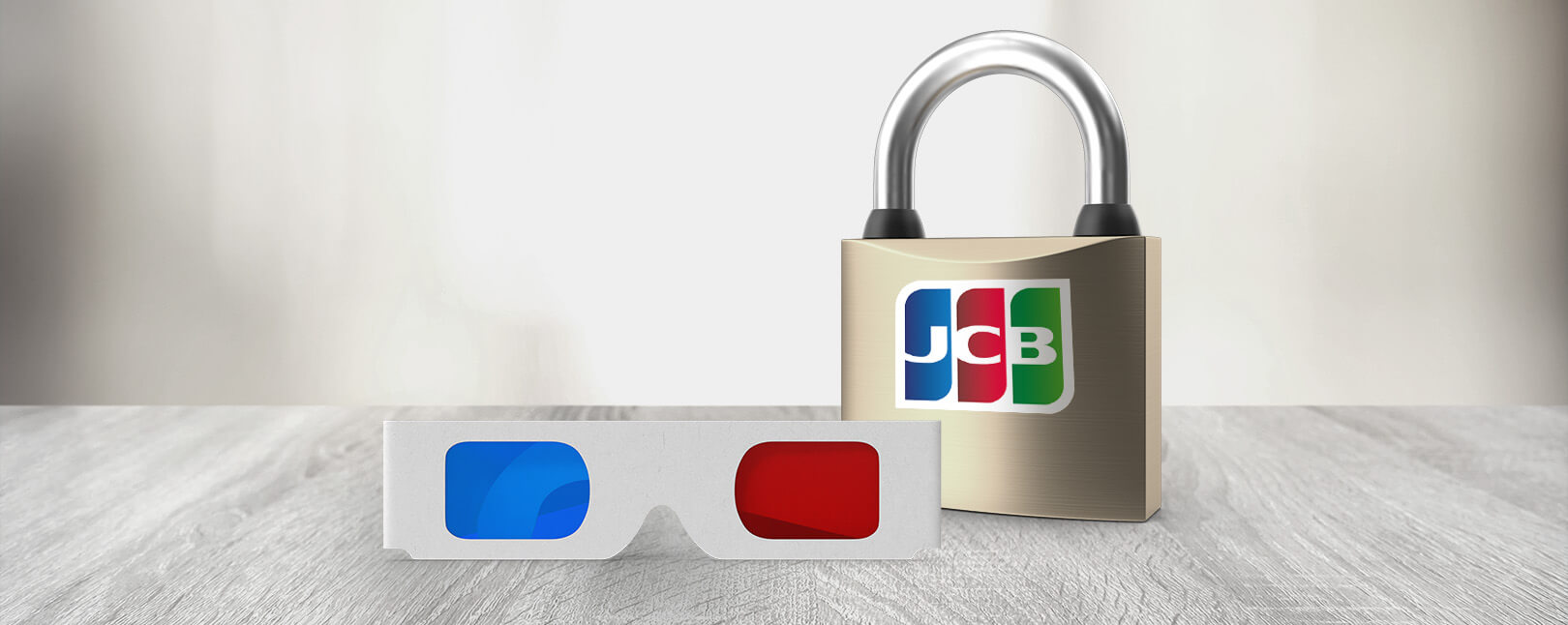J/Secure: How 3-D Secure Works on the JCB Network
JCB J/Secure is an authentication service deployed on the JCB card network.
The tool improves the overall security of card-not-present transactions by preventing unauthorized payment card use at online shopping sites. J/Secure also provides identity verification and account confirmation. This enhances reliability and grows sales by increasing cardmember confidence in online purchases.
How does it benefit your business specifically, though?
This article will examine what JCB J/Secure is and how it implements 3DS technology. We’ll also discuss some of the benefits JCB 3DS offers, in contrast with its potential downsides.
Recommended reading
- What is 3D Secure 2.0? How it Works & Why It’s Necessary
- What is Mastercard Identity Check? Can it Help Stop Fraud?
- 3DS2 Adoption: How is the Process Going?
- What is 3-D Secure? Fraud Prevention Solution Explained
- ECI Indicators: How to Understand 3DS Response Codes
- Detecting Credit Card Fraud in 15 Steps
What is 3-D Secure Technology?
Let’s start with the basics.
3-D Secure is a customer authentication protocol created for eCommerce. The system is used to validate buyers at checkout, creating an additional layer of security for online transactions. Card networks recommend that both issuing banks and merchants support the protocol.
You can enroll in 3DS programs through each card brand. If you’re uncomfortable doing this yourself, contact your processor or merchant account provider to see if they offer 3DS and can help you deploy it in your eCommerce store. Some third-party providers can help you implement 3-D Secure verification as part of a chargeback management plan.
Learn more about 3-D SecureHow JCB J/Secure Uses 3DS Tech
JCB 3DS is a service that uses real-time authentication software to verify card users before a transaction. This data is used to detect stolen cards, identify unauthorized users, and thwart fraud attempts before a transaction can be processed. This technology aims to help merchants improve their antifraud and chargeback prevention efforts.
Approved transactions with JCB J/Secure work like this:
Action 1 | Authentication Prompt
A customer begins a purchase by inputting or inserting their card via a POS terminal or online field. Their card data is then processed through JCB J/Secure, which evaluates the cardholder based on their login credentials, location, and transaction history to determine the likelihood of a fraudulent transaction. The entire process takes place in just seconds.
Action 2 | Approval Notification
If the algorithm verifies the cardholder’s credentials, J/Secure will approve the transaction in real-time. Once authenticated and authorized, the cardholder will be directed to a confirmation page without delay.
What if the credentials provided by the buyer don’t check out, though? Transactions declined by JCB J/Secure work like this:
Action 1 | Authentication Prompt
Same as above, the cardholder submits credentials that run through J/Secure for authentication. The algorithm evaluates the cardholder’s credentials to determine the likelihood of a fraudulent transaction. Again, this entire process occurs in just seconds.
Action 2 | Verification Trigger
If the J/Secure algorithm cannot authenticate the cardholder’s credentials, the cardholder will receive a temporary passcode via email or SMS that they can input into a pop-up field. This extra step is triggered when the cardholder does anything outside the norm, like buying at irregular times (like the middle of the night) or thousands of miles away from home. The email may also trigger if their identity cannot be verified or they misspelled anything during the verification process.
Action 3 | Decline
Suppose the passcode is not imputed correctly by the individual attempting to initiate the transaction or the code times out. In that case, it will be denied, and the cardholder will receive an email explaining the reason for the decline.
Unfortunately, the truth is that most genuine cases of credit card fraud result from card numbers being bought and sold on the dark web. Cybercriminals use card details acquired through data breaches, phishing attacks, identity theft, and ATO fraud to commit all sorts of criminal acts.
Credit card numbers alone can’t guarantee success for a fraudster. Most scammers buy their stolen card numbers in bulk and try as many as they can at a time, hoping one will work where ten might fail. Merchants who implement 3DS services alongside their regular fraud prevention systems tend to have better success against fraud.
Benefits of JCB J/Secure
According to JCB, J/Secure enables merchants and issuers to exchange detailed information, helping reduce fraud and minimize the need for a one-time passcode. This improves the user experience and helps prevent shopping cart abandonment.
Building consumer confidence can help expand your market reach. Enhanced fraud protection through SafeKey may encourage online customers to spend more and help grow your business. It can:
Potential Downsides to J/Secure
It’s true that JCB J/Secureis a vast improvement over their earlier fraud prevention tools. However, there is still no such thing as a “foolproof” fraud prevention solution.
Programs like J/Secure can introduce overly sensitive fraud triggers that cause friction at the secondary approval stage. This could encourage some legitimate customers to be put off by the additional security measures and ultimately abandon their carts. Merchants should be advised that this happens often enough that friction will likely be an issue.
Another issue is that 3DS systems are still largely ineffective against friendly fraud and other forms of first-party abuse. Since friendly fraud is a post-transactional act committed by the actual cardholder, 3DS will be rendered useless in these cases. This is a serious concern because friendly fraud accounts for the bulk of merchant chargebacks.
How can you combat these issues and still get the most out of 3DS technologies like JCB J/Secure? Frankly, you must adopt a broader strategy to mitigate fraud.
3DS: A Smart Addition to Any Fraud Prevention Strategy
3-D Secure 2.0 technologies like JCB J/Secure work best as part of a multilayer fraud and chargeback management strategy.
Incorporating 3DS into a multi-faceted anti-fraud system can stop many fraud attacks in their tracks. Most fraudsters are unlikely to have all the data they need to combat these systems working in tandem with each other; redundancies provide a tighter screening net, identifying more fraud attacks and generating better data.
JCB J/Secure is available to EMV-certified merchants (who can provide written certification verification) and PCI-DSS compliant. For true risk mitigation, though, you need a customized, end-to-end solution that can deploy the right tools and tactics where they will do the most good.
If you’re interested in learning more about 3-D Secure—or any other aspect of chargeback management—contact Chargebacks911® today. We can show you how to take chargebacks off your plate and increase your ROI.














